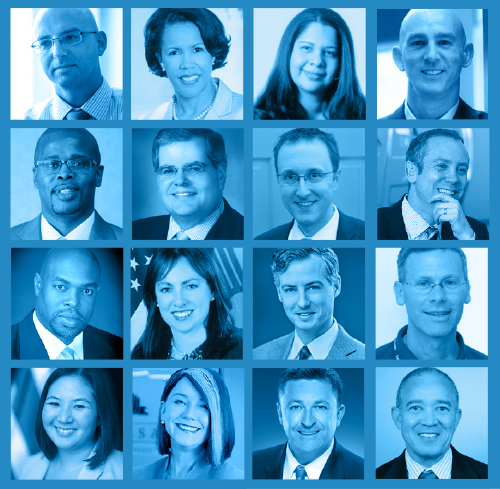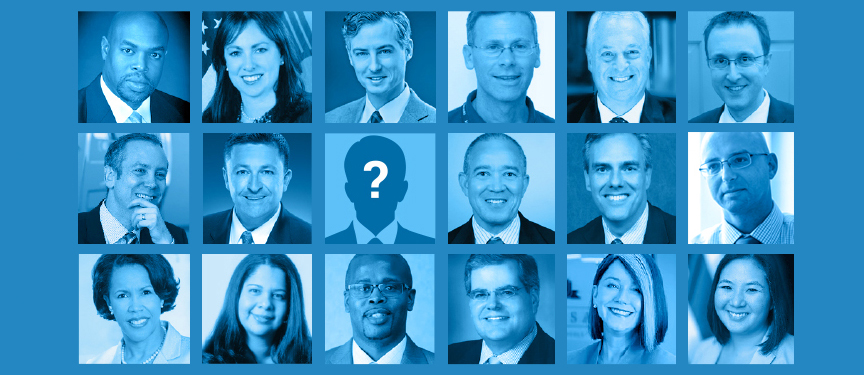
SUBSCRIBE
TO MONTHLY UPDATES
We'll send you information that
will keep you up to date on CFC

Kunjan Narechania is chief operating officer at the Louisiana Department of Education, where she leads the internal operations at the Recovery School District in New Orleans and the state’s school-choice office. She started her career as a teacher in Durham, North Carolina and is currently part of the first group of Future Chiefs with the Chiefs for Change education-reform organization. She shares how her personal and professional life shaped her commitment to high expectations and equity.
I love New Orleans coffee and—more importantly—beignets. If I lived there, I couldn’t resist having beignets every morning with coffee. How do you manage that?
I’m a tea drinker, and I stop for a good cup of tea at HiVolt or one of the PJ’s or CC’s around NOLA. I do have a real love of beignets, though. The good news is that living in the Irish Channel, I can strategically chart my daily course to avoid the best beignet spots in the city; otherwise, I don’t think I could resist them every day either!
Talk about your background and education and how it shaped your career path.
I moved to the U.S. with my family when I was 4 years old. As my parents got new jobs or were able to afford better homes, we moved from city to city and state to state. In all, I attended 11 different public schools before graduating from an exceptional public high school in the suburbs of Chicago.
With every new school, I wondered what new opportunities lay ahead. What would I get to learn? What could I participate in after school? And of course, what were the kids like? But, I also felt a consistent anxiety about each new school. Not only did I have the obvious worry about whether I would make friends; I worried about the teachers. Would the teachers in this school think I was smart? Would they help me learn? What if I couldn’t be successful at this school?
Some of the schools I attended opened doors for me. My teachers pushed me to read more challenging books, to consider careers in science, to tutor my peers, to take more AP classes and to apply to the best colleges in America. But that wasn’t true at every school, and as much as I remember those who pushed me to be better, I also remember those that questioned whether I could really be successful at all, and when they questioned me, I remember questioning myself.
Every student wonders if she’s smart enough or whether her school will prepare her for what’s next in life. And, every student deserves to know that the answer is yes, she is smart enough and yes, her school will prepare her for what’s next.
In all the work I have done—whether it be as a teacher, as a teacher coach, in a district role, or in a state-level role—I have worked to ensure that all students have access to challenging opportunities and are held to the highest of expectations.
What are some of the changes your state is considering under the new ESSA law?
While we’ve seen much progress in Louisiana, there is still much more work to be done. Recently, the Department of Education published our ESSA framework, where we outline five key challenges on which our state will be focused in the coming years. This framework was developed with the input of over 200 local organizations, and we will continue to gather input from our stakeholders as we finalize the plan in the coming months.
One notable area within this framework is centered around finding the most effective supports for Louisiana’s persistently struggling schools. While research has shown that struggling schools need support in developing such plans, no catalogue of school improvement partners exists.
Ultimately, a group of the respondents will be invited to a one-day summit where our districts will have an opportunity to meet these groups and have the option to begin co-creating plans for improvement.
How about specifically in New Orleans, what change has made the biggest difference for kids and families?
Here in New Orleans, local legislators, school leaders, and community members have come together to create a system of autonomous charter schools. In our city, 95 percent of our city’s public school children attend a charter school. This system of choice is focused on empowering those closest to students to make decisions on their behalf, holding schools accountable to achieving results with students, and giving parents the freedom to choose the school that is best for their child.
This system—grounded in autonomy, accountability, and choice—has seen extraordinary progress. In 2015, New Orleans ranked 41st out of 69 districts in Louisiana, when 15 years ago, it ranked last amongst all Louisiana school systems. The graduation rate for African-American males in New Orleans, 68 percent, far exceeds the national average of 59 percent.
But there is one component of the system that I think has been critical for kids and families that doesn’t get talked about enough—our city’s unrelenting focus on equity for all students. Over the course of the past five years, our city has come together to build solutions that ensure every student has equitable access to a high-quality education.
In New Orleans, equity is valued just as much as accountability, autonomy and choice.
Ok, back to beignets. Are they in your top 5 favorite New Orleans specialties? What else is up there?
Are you serious?!? It’s New Orleans! In this town, people love food, music and celebrations. On any given day, you can run into a second-line, see a great jazz concert, or eat some of the best food in America (even for vegetarians like me). Y’all should come visit!